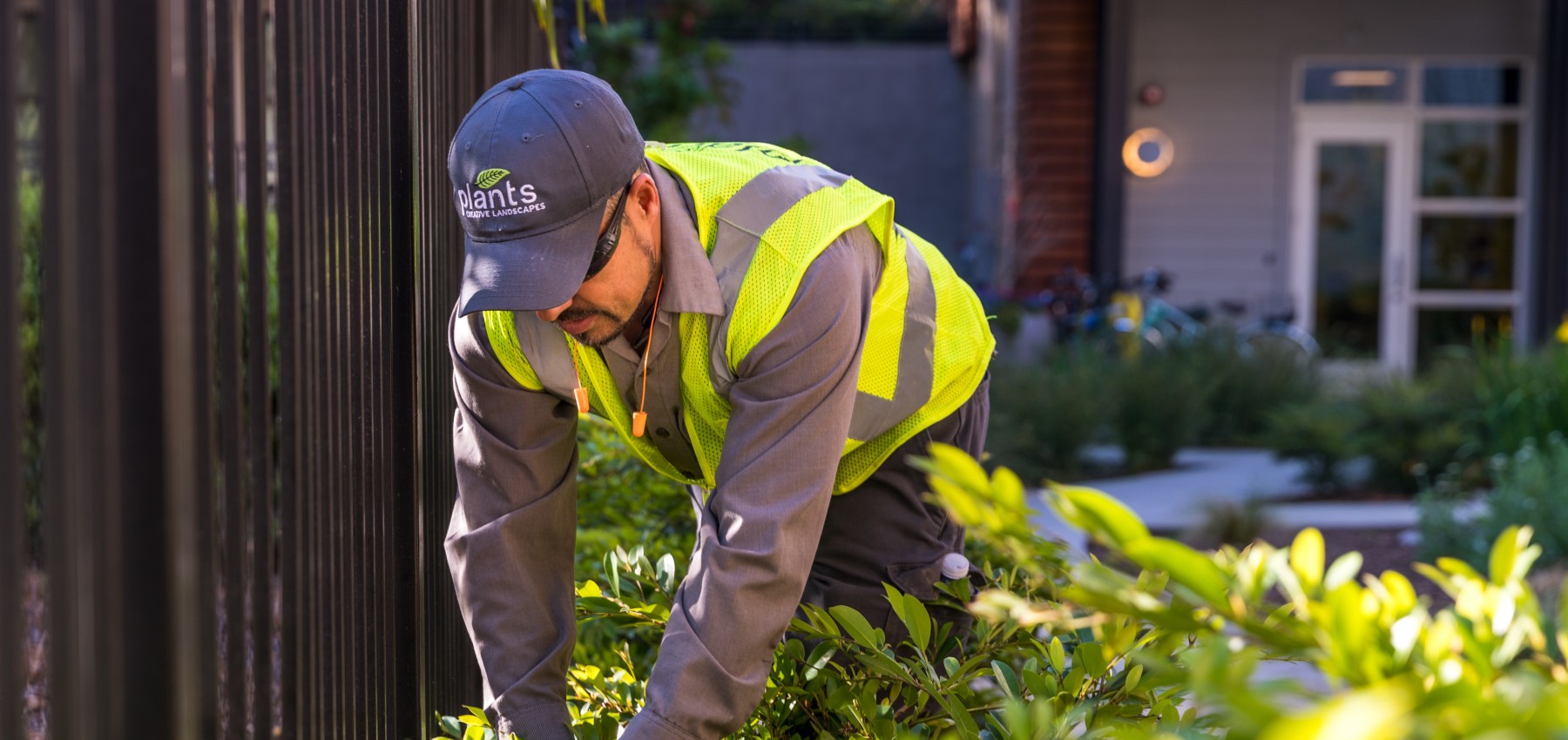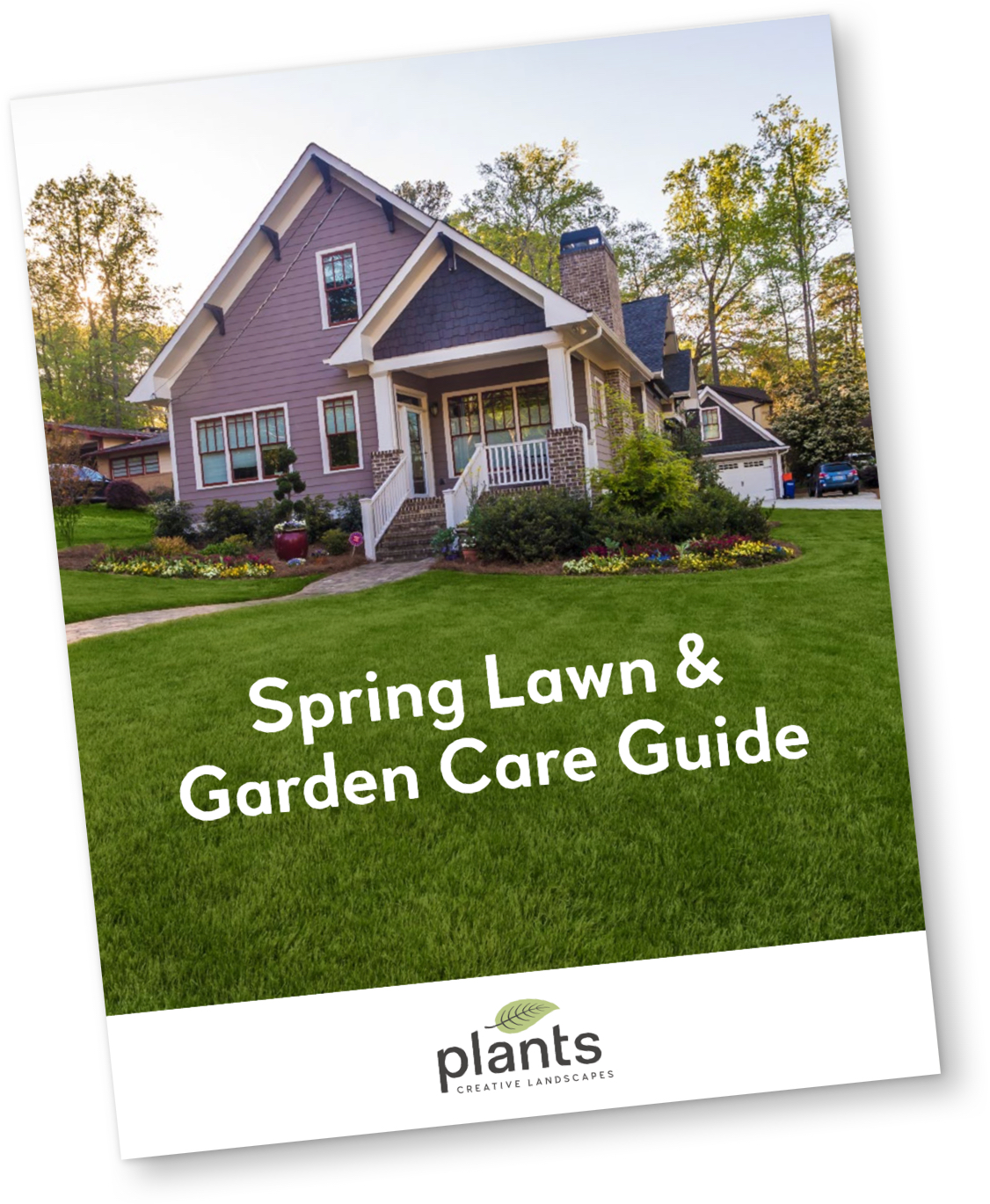How to Manage Weeds in Your Landscape Beds Safely and Effectively
Weeds don’t need an invitation. They creep into ornamental beds, pop through fresh mulch, and settle in places they don’t belong. At Plants Creative Landscapes, we approach weed control with care and intention—balancing natural methods with smart, selective interventions when needed.
Two of the most common tools we use for weed management in beds are horticultural vinegar and synthetic weed killers. Both have their place. Here’s how each works, their pros and cons, and how they fit into a healthy, long-term plan for your Atlanta landscape.
Horticultural Vinegar for Natural Weed Control
Horticultural vinegar is a natural, non-selective option made from highly concentrated acetic acid.
Pros
- Organic and chemical-free: Safer for people, pets, and pollinators when used properly
- Quick results: Weeds often wilt within hours
- No soil impact: Breaks down quickly and leaves no residue
- Best for spot treatment in mulched beds, pine straw areas, and along paths or hardscape edges
Cons
- Non-selective: Kills anything it touches, including nearby plants
- Surface-level only: Does not kill roots, so some weeds may return
- Less effective on deep-rooted or perennial weeds
- Requires safe handling: Higher-strength vinegar can be caustic
Horticultural vinegar is best for eco-conscious homeowners who want a natural solution and who already maintain healthy beds with regular mulching.
Synthetic Weed Killers for Targeted Control
Synthetic herbicides are carefully formulated chemical solutions designed to target stubborn or invasive weeds.
Pros
- Systemic control: Penetrates down to the root for longer-lasting results
- Effective on tough species: Handles perennial invaders, vines, and aggressive weeds that resist hand-pulling or vinegar
- Less frequent application: Reduces repeat treatments
Cons
- Environmental considerations: Certain products may impact beneficial insects, pets, or nearby plants if not applied carefully
- Residual presence: Some can linger in soil or wash into unintended areas
- Risk of drift: Overspray or wind can damage ornamentals
- Timing matters: Works best in dry, calm weather
Synthetic products are best when used sparingly, with precision, and as part of an overall landscape care strategy—not as a one-and-done fix.
Mulch and Pine Straw as Long-Term Weed Control
No matter which method you use, nothing beats consistent mulching as the foundation of weed prevention.
- A 2–3 inch layer of mulch or pine straw blocks sunlight, suppresses weed seeds, and keeps your beds looking polished
- Mulch also regulates soil temperature, retains moisture, and improves soil health over time
- Renewing mulch or pine straw seasonally makes your landscape more resistant to weeds year-round
Mulch is your first line of defense, with vinegar or herbicides as the backup tools when weeds inevitably sneak through.
Our Approach at Plants Creative Landscapes
We do not believe in “spray and walk away.” Our team creates customized weed management plans that respect your property, your plants, and the environment.
- When customers prefer natural methods, we use horticultural vinegar in combination with regular mulching for lighter weed pressure
- When customers prefer synthetic options, we carefully spot-treat with selective products to handle tough or invasive weeds
- Always, we recommend mulch or pine straw as the foundation of any weed control strategy
Need Help with Weed Control in Your Atlanta Landscape?
Whether you prefer natural solutions, synthetic options, or a blended approach, our team can help you create a care plan that is safe, effective, and tailored to your landscape.
Schedule a consultation today and take the guesswork out of weed control.



